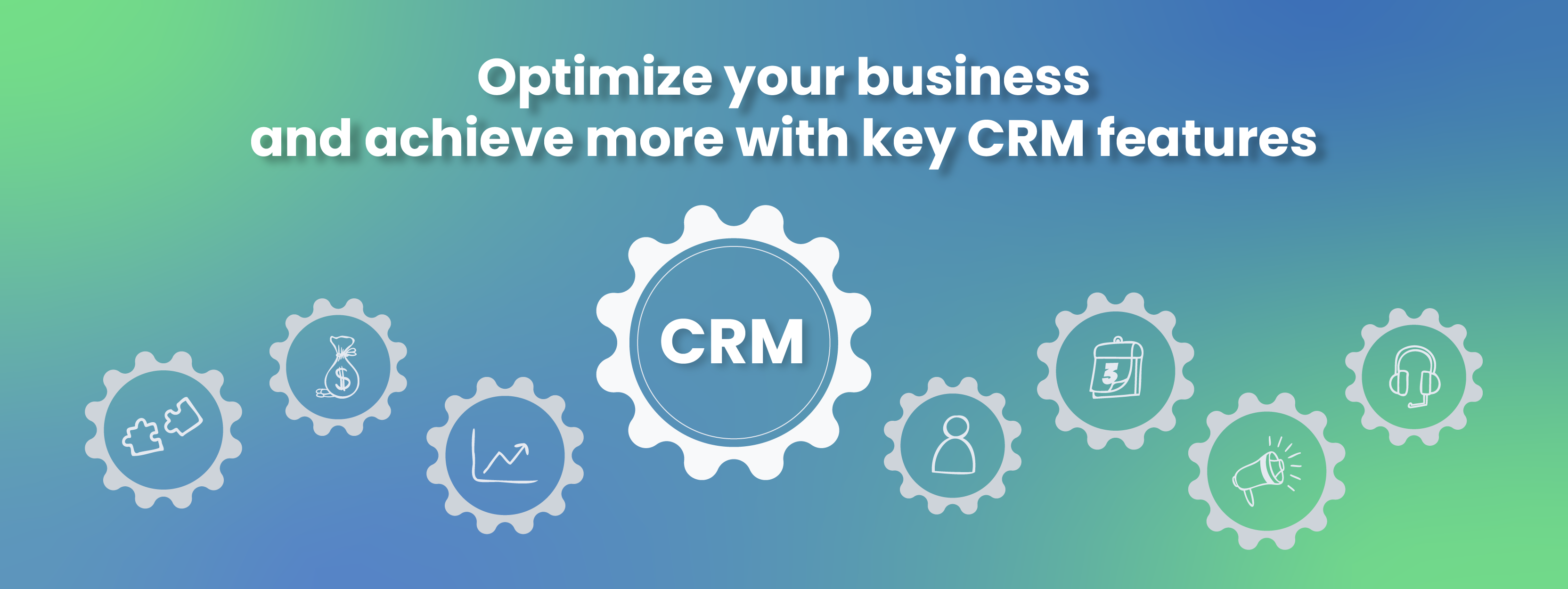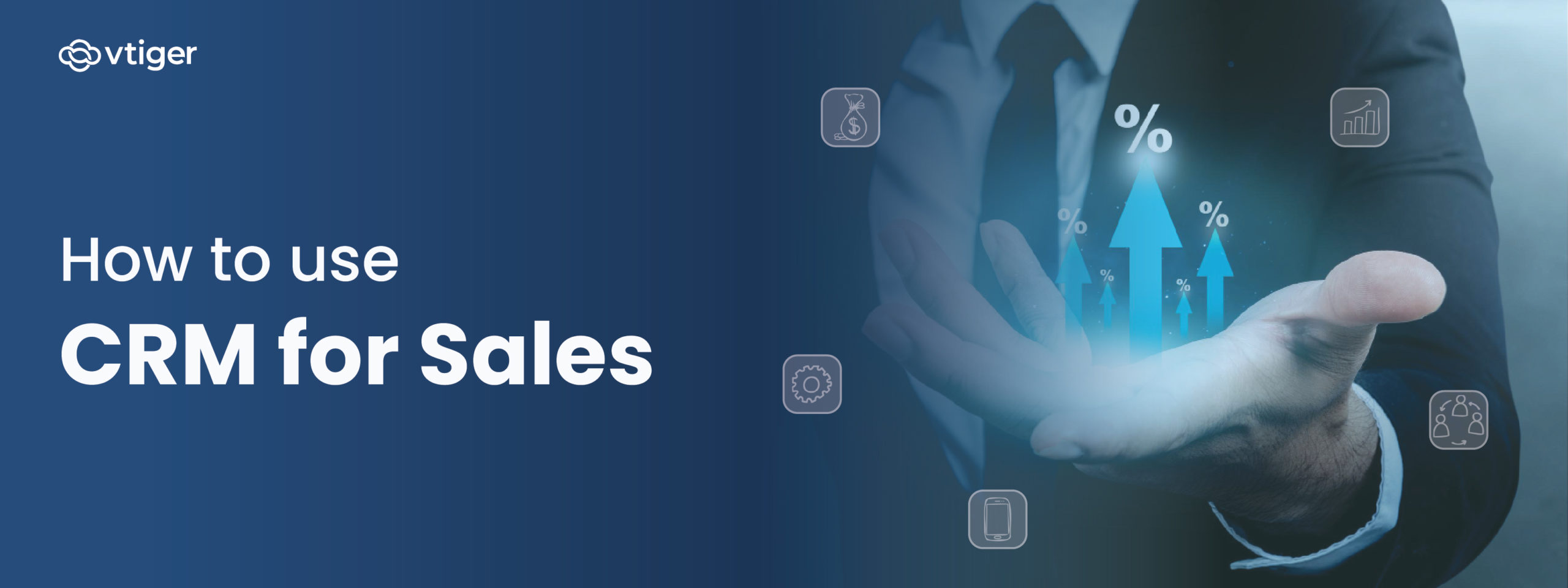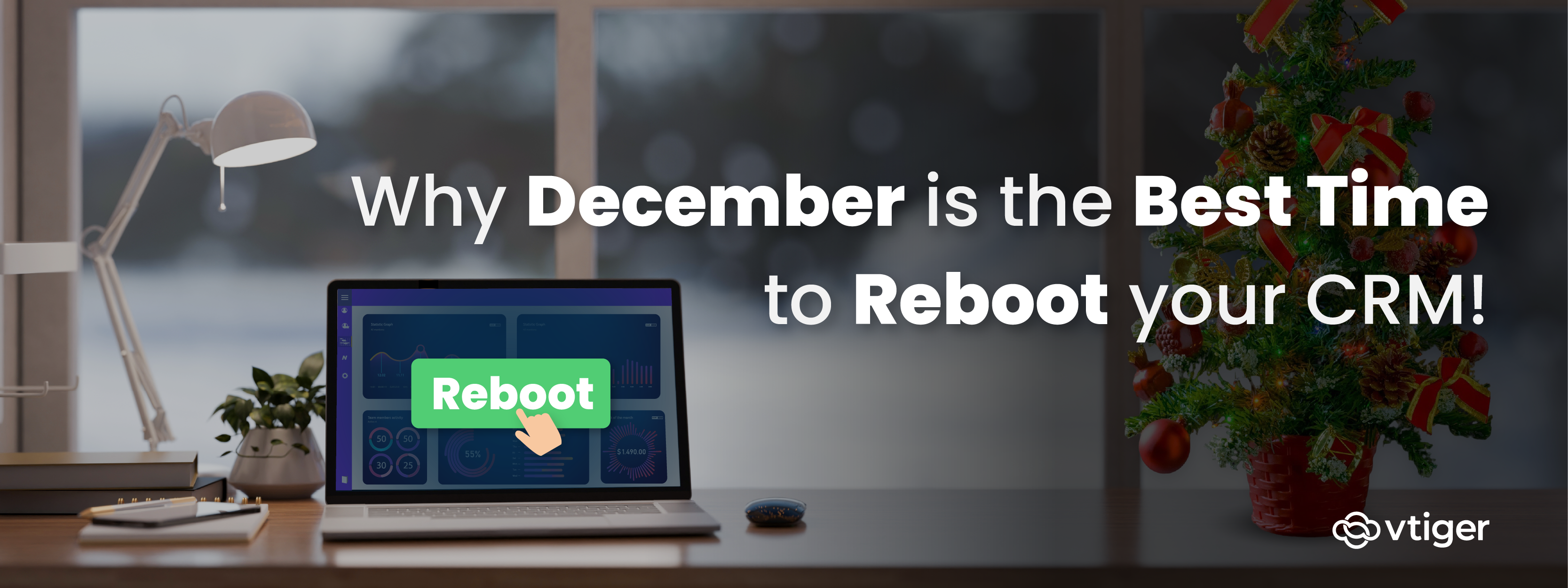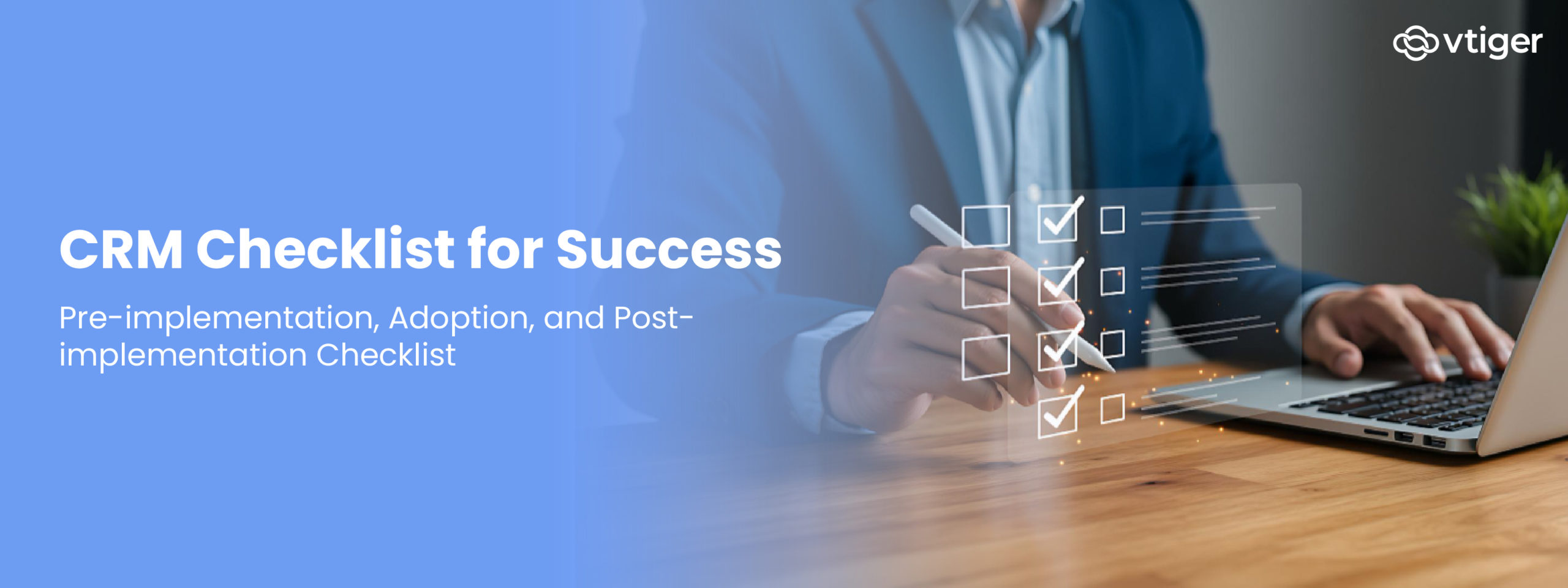A small business in California was unable to manage leads and customer interactions effectively which led to missed opportunities and poor customer satisfaction.
They implemented a popular CRM with key modules and features such as contact management, sales pipeline management, sales analytics customer support, etc.
The company sales team successfully managed their customer interactions more effectively and closed more deals. They made data-driven decisions with the accurate forecasts and key insights generated. This helped the company improve its sales performance and drive growth.
As you can see, a CRM has the right features to simplify your everyday tasks. Before looking into it, let’s first define a CRM.
CRM, or Customer Relationship Management, is a software application that helps manage and analyze customer interactions and data throughout the customer’s lifecycle. The goal of a CRM system is to improve customer experience, satisfaction, loyalty, and retention.
Companies that use CRM systems have seen a 17% increase in lead conversions, a 16% boost in customer retention, and a 21% improvement in agent productivity, says DemandSage1.
No matter your business size or type, if you want to manage your customer relationships effectively, you need a CRM system with relevant features.
CRM features provide specific functionalities and capabilities that help you carry out your work. Let’s guide you through a few of the widely-known features of a CRM and point out some key features.
Getting to know the basic features of a CRM
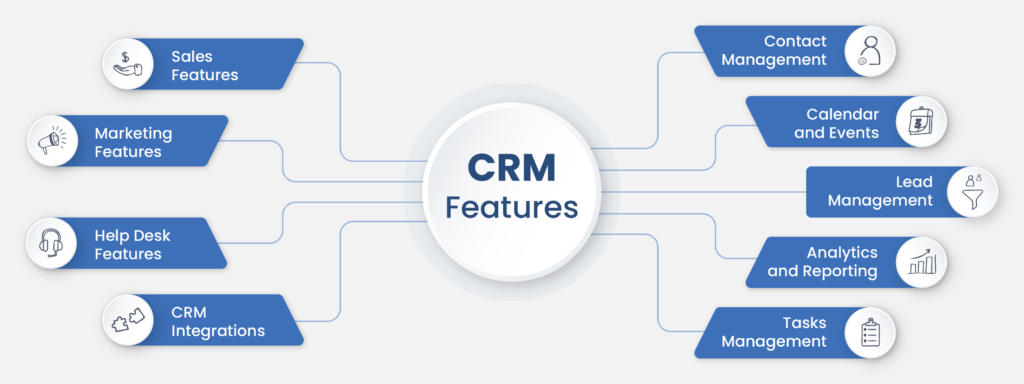
Lead Management
Lead Management enables you to capture information, track, and score leads. For example, you can nurture leads with personalized and targeted marketing campaigns and track the effectiveness of lead-nurturing strategies.
Contact/Customer Management
This feature helps you manage all the information related to a contact or customer in a CRM system. This includes purchase history, previous interactions, contact information, etc. Contact Management allows you to segment customers based on these aspects as well as track their engagement and update contact details.
Calendar and Events
Here, you will find the tools for scheduling meetings and events with clients and other members within your organization. This feature allows you to track attendance or tasks, create and share calendar invites, and more.
Analytics and Reporting
Known to be the key components of a CRM system, they enable businesses to make data-driven decisions. With Analytics and Reporting, you can gain insights into sales performance, marketing performance, customer behavior, and more. These help you create personalized data and optimize customer relationships.
Tasks
This includes tools for creating and assigning tasks, tracking progress, setting dates, etc. It is meant to help businesses manage and prioritize tasks related to customer interactions.
Now, let us look at CRM features in the context of sales, marketing, and customer support.
Sales Features
The Sales feature in a CRM system is a set of tools and capabilities to optimize your sales processes and strategies. Some of its key components include:
- Sales Pipeline provides a visual overview of the sales process and the number of opportunities at each stage. It helps monitor and manage sales activities, as well as forecast and track sales performance. CRM software with effective pipeline management can elevate your sales performance significantly.
- Sales Analytics refers to analyzing and interpreting sales data to gain insights into sales performance, identify opportunities, and make data-driven decisions. For example, a sales analytics tool can predict which leads are most likely to convert or which sales strategies are most effective for specific customers.
- Sales Collaboration provides the sales team with all the necessary tools to work together efficiently to improve sales performance and customer engagement.
Marketing Features
The Marketing feature lets you automate, customize, and enhance your business marketing efforts. Key components include:
- Email Marketing in a CRM connects with potential customers, raises brand awareness, and builds customer loyalty. It helps you send targeted emails, capture and qualify leads, and track customer engagement.
- Marketing List is another component that allows marketers to categorize customers based on a wide range of criteria like demographics, behavior, and purchase history. Marketing lists help you send emails to the right customer segment.
- Landing pages and Web forms provide businesses with the tools to boost lead generation and conversion rates.
- Social Module helps you manage messaging on social media directly from the CRM. It helps you interact with customers via campaigns, feedback, surveys, etc.
Help Desk Features
With the Help Desk feature in a CRM, customer issues can be resolved efficiently. It tracks customer issues, automatically assigns them to the right support rep, and keeps a history of all customer interactions. Its components are:
- Case Management consists of tools for creating, tracking, and managing support cases. These tools provide a more personalized and responsive customer support experience.
- Ticketing includes tools for creating, tracking, and managing customer support issues, such as issue type, priority, and status.
- SLAs, or Service Level Agreements, enable businesses to define, track, and manage SLAs. They also help businesses measure and improve their customer support performance against these SLAs.
- Live Chat allows you to engage with customers in real time. It includes tools such as chat interface, chatbots, etc, which you can customize as needed. This helps to provide a personalized and responsive customer experience.
CRM Integrations
CRMs allow you to integrate and sync with external applications that provide services such as emails, social media, calendars, WhatsApp messaging, phone calls, accounting, etc. With CRM integrations, you can:
- Make phone calls and send SMS and WhatsApp messages from the CRM
- Manage your emails from different service providers in the CRM.
- Manage all your social media accounts (Facebook, LinkedIn, X, etc.) from a single platform.
- Import and export accounting transactions and manage them from the CRM.
Why choosing the right CRM is important
To fully attain the benefits of a CRM system, it is important to have a clear understanding of your business requirements and whether the CRM can meet those requirements.
Some of the key questions that you can consider for choosing and implementing a CRM include:
- Whether your organization can increase the potential of your CRM investment.
- How the CRM system can be used to improve the performance of your sales and support team?
- Whether the key features in a CRM will help your teams achieve their business objectives.
Here is what you can keep in mind for successful CRM implementation:
- Understand your goals when choosing a CRM that aligns with your business needs.
- Involve the end-users of the CRM to study their requirements and make the right decision.
- Provide ongoing training to your team members so that they can learn how to use the CRM tool well.
- Ensure that the necessary changes are made for optimized performance.
Check out our June Newsletter at Vtiger Bytes to access the step-by-step CRM implementation checklist.
Need further assistance with your CRM implementation? We have you covered!
Take Vtiger’s one-week implementation program where you will receive expert guidance on navigating the implementation process to set up your CRM in just a week!
If you are also looking for a better CRM that aligns with your business needs, learn why Vtiger CRM is the most favored solution among many.
What makes Vtiger CRM features stand out from the rest?
Apart from its high degree of customization capabilities, here are some of the key aspects of Vtiger CRM:
- Unified customer view: A 360-degree view of customer interactions and data across various channels. This provides businesses with quick access and delivers tailored customer experiences.
- Increased collaboration: Users can work seamlessly and boost their productivity with tools such as document management, project management, etc. This improves internal communication and workflows.
- Analytics and Reporting: Tools such as dashboards, charts, and reports help track and analyze performance and make data-driven decisions.
- Vtiger Mobile App: Designed for iOS and Android, Vtiger Mobile App allows users to easily interact with their teams and customers across multiple channels.
- Third-party integrations: Vtiger supports integrations with many third-party applications, which helps streamline processes and improve data accuracy. It is powered by Calculus AI + GPT capabilities which provides businesses with advanced analytics and insights to make data-driven decisions.
- LMS: The Learning Management System feature allows businesses to create learning courses to train their internal teams, customers, and partners. The LMS helps equip the team with the skill set to deliver quality customer experiences.
Interested to learn more about Vtiger features? Know more.

- https://www.demandsage.com/crm-statistics/
